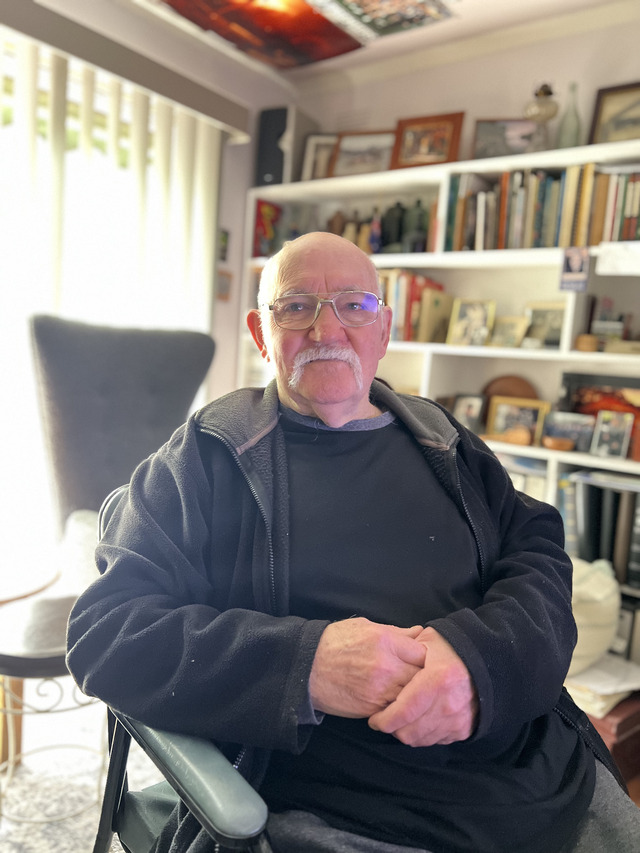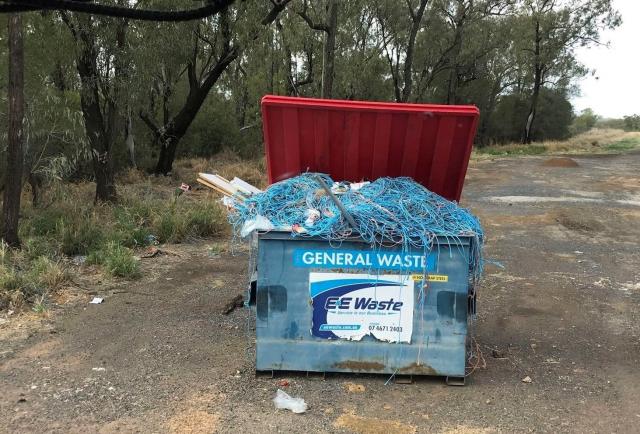Ferntree Gully resident Bill Ireland is on a mission to bring awareness about the lack of incontinence bins in men’s public toilet spaces, after his embarrassing experience using an automated toilet.
The 78-year-old is amongst one in four Australians to be affected by incontinence.
Mr Ireland shared his personal experience of struggling with incontinence and the lack of discreet and accessible toilets.
A couple of weeks ago, when he was on his way to his bowel specialist, he needed to use the public toilet in Boronia Mall, the closest toilet for him was the Dorset Square Shopping Centre Carpark.
It was Mr Ireland’s first time using the programmed-Exeloo toilet which merely allows 10-minutes usage for each user.
“I needed an extra 10 minutes when an automated voice said that your 10 minutes has expired, and I got about three warnings in a couple of seconds, and then a siren layout-like-noise sounded, the doors automatically opened – it was very, very embarrassing.”
“I didn’t realise how crucial this issue was until I had an incontinence problem myself,” Mr Ireland said.
He initially contacted the Knox City Council on 23 May 2024 to express his concerns and call for a change.
The council responded to his initial request on 13 June 2024, the statement read, “I have investigated your complaint, which involved liaising with the Australian Representatives that manage installations and maintenance of Exeloo branded facilities.”
The council’s statement further reads, “as a result of my investigation, I have decided that, due to the large volume of use that these facilities receive, extending the 10-minute usage period of each cubicle beyond 10 minutes may not be in the best interest of all users. As well as ensuring that the facilities are accessible for all who require them, there is also a safety element included in this decision.”
The second response from the council to Mr Ireland’s request was sent on 30 July 2024.
The letter outlined the same response as the first letter
“As mentioned in the 13 June letter, factors such as safety and timely access in case of medical emergencies is the main reason for not increasing this duration. Therefore, Council will maintain the current 10-minute locking period, noting that the option for users to extend it by an additional 10 minutes as needed by pressing the button on the inside of the toilet,” the council letter reads.
Mr Ireland argues that the Exeloo-toilets are vandal-proof and it should have options to use the toilet for longer than 10 minutes if needed, to avoid humiliation, without having to press the green button.
“The 10-minute alarm to keep vandals out, in my view, is absolutely ridiculous, because most of the place is vandal-proof, and it’s only for graffiti, and a lot of damage can be done with graffiti in less than 10 minutes,” he said.
Mr Ireland said the council needs to take a better understanding of the situation and listen to more people like him.
“They (the council) should go to the toilets and experience the operation themselves, instead of just getting the details from the manufacturer, and they will find out firsthand what is actually involved – the way these toilets operate, many people refuse to even go near them for that very reason,” he said.
The retired Ferntree Gully resident said there are hardly any facilities for men’s incontinence products to be placed in men’s toilets and more needs to be done to address this issue and improve the quality of life for those affected with incontinence.
He said this isn’t a luxury request but a basic need for men who suffer from incontinence to feel dignified and comfortable enough to be in public without fear or humiliation.
“I would like to help all men affected by incontinence around Australia to improve this situation,” he said.
If incontinence is not managed well, the affected person may experience feelings of rejection, social isolation, dependency, loss of control and may even develop problems with their body image.
“Men fail to ask about incontinence, which means they do not get the information they need to manage the condition,” he said.
According to the Continence Foundation of Australia, the research of Australian men with urinary incontinence found that 57 per cent of Australians intentionally keep incontinence hidden from those close to them, while 50 per cent with the condition tend to avoid situations where they could not access a toilet easily and around 28 per cent avoid socialising, except with close family and friends.
The research also found that an urge incontinence [a sudden and strong need to urinate (wee)] commonly occurs with prostate disease, it is low in younger men and increases to 30 per cent for men aged 70 to 84 and 50 per cent for men aged 85 years and above.
The foundation launched ‘Bins4Blokes’ in June 2021 to raise awareness and promote Australia-wide advocacy for the installation of incontinence bins in male public toilet facilities
More than 50 businesses, councils and other organisations joined the call to support over one million men around Australia who live with incontinence.
Currently, an estimated 1.34 million Australian boys and men are living with urinary or faecal incontinence, however, male toilets do not provide a hygienic and dedicated disposal method for incontinence products such as pads and pull-ups.
The campaign is working towards adding disposal bins for incontinence products.
According to the campaign, Melbourne is the first city in Australia to trial incontinence product disposal bins.
These seven locations that currently trial disposal bins for men’s products:
· Library at the Dock, Docklands
· Melbourne City Library
· Melbourne Town Hall Public Toilets at 200 Collins Street (below ground level)
· North Melbourne Community Centre
· Kathleen Symes Library, Carlton.
“Knox claims they’re progressive, if they take notice of this, that will be a very good thing and it will keep up their good work,” he said.
Knox Council’s spokesperson said the council recognises the importance of public toilets for residents and visitors to Knox’s public spaces.
“In this instance, the public toilet in Dorset Square includes a bin within the cubicle for the disposal of sanitary and incontinence products. Similar facilities are available in all the automated toilets and at the Knox Civic Centre, Rowville Community Centre and Knox Community Arts Centre,” the spokesperson said.
“In our automated toilets, users can extend the initial 10-minute usage time by pressing the lock button again, allowing for an additional 10 minutes. This feature is designed to enable access in the event of person collapsing or experiencing another medical emergency, while also maintaining comfort and availability for users.”
“The set timeframe is designed to balance these needs, providing a safe and convenient experience for everyone.
Knox City Council were contacted for comment.”







